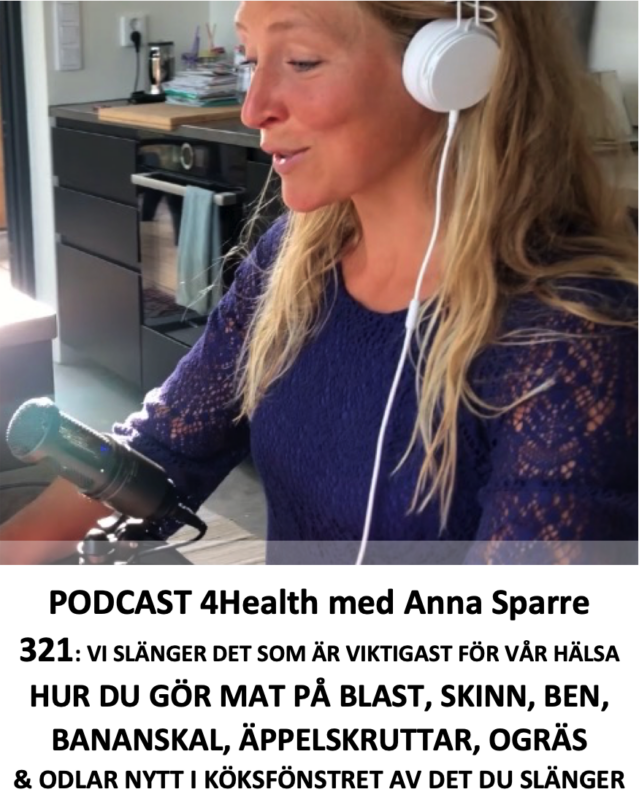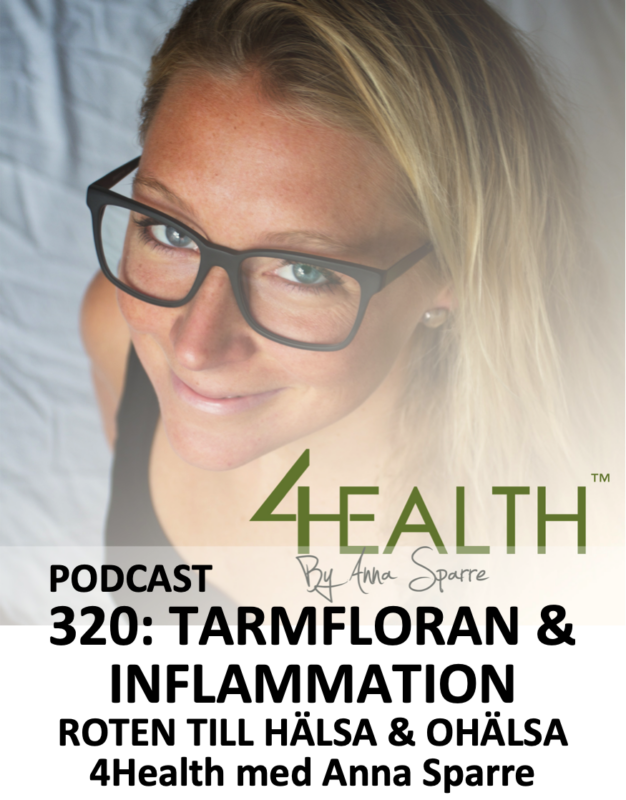

- Maten du inte visste om(!) Slänger du det allra nyttigaste?
- Du behöver i stort sett inte slänga någonting på maten du köper. Trots det slänger vi 74 kilo mat i hemmet per person och år
- Dessutom slänger vi ofta det som är viktigast för vår hälsa
- Tips på:
- allt från blast och skinn och ben; till bananskal och äppelskruttar
- bacon på bananskal?
- vilka blommor och blad du kan göra sallad av från gräsmattan
- hur du godast tillagar blasten på grönsakerna
- hur du kan odla nya grönsaker i köksfönstret av det du normalt sett slänger
- och mycket mycket annat…
- Extra aktuellt tema nu när maten är dyrare och elpriserna höga, men visste du att matsvinn beräknas stå för nästan tio procent av världens utsläpp av växthusgaser?!
- Så lyssna idag både för din hälsa, plånbok och för vår jord
Här får du en halvtimme att lyssna på tex. när du städar, promenerar, tränar eller åker bil
Som jag nämnde i avsnittet så får du 5000 kr rabatt på yrkesutbildningen i HKT/kinesiologi med koden SPARRE Här hittar du den
Så här gör du:
Lyssna på din dator
- Antingen kan du lyssna direkt här på bloggen genom att trycka på play i respektive avsnitt, dvs längst ner här i inlägget (alla avsnitt hittar du här: https://4health.se/category/podcast)
- Eller så kan du gå in i iTunes och söka 4health. Då hittar du kanalen 4Health med Anna Sparre som du kan klicka på och välja avsnitt att lyssna på. Klicka på prenumerera så får du varje avsnitt.
Direktlänk till iTunes: https://itunes.apple.com/se/podcast/4health-med-anna-sparre/id907951009?mt=2
Lyssna på din iPhone
- Lyssna i appen Podcast (lila och vit symbol). Annars gå till App Store i din telefon och sök Podcast. Välj ladda ner (gratis)
- Gå in i Podcastappen och sök 4health. Då hittar du kanalen 4Health med Anna Sparre som du kan klicka på och välja avsnitt att lyssna på. Direktlänk: https://itunes.apple.com/se/podcast/4health-med-anna-sparre/id907951009?mt=2
Lyssna på din android:
- Se till att du har en app för att lyssna på podcasts. Gå till Google Play i din telefon för att ladda ner en podcast-app. Exempel på podcast-appar för android som du kan söka upp och ladda ner till din telefon är BeyondPod eller pocket cast. Se här för olika podcastappar till android: https://play.google.com/store/search?q=podcast&c=apps
- Sök fram podcasten, eller öppna länken till 4healths podcast-feed i denna app. Detta är det podcast-feed du kan kopiera och öppna i din podcast-app: https://4health.se/category/podcast/feed
Gå gärna in och lämna en recension när du ändå är i iTunes.
Podcast: Play in new window | Download
Subscribe: RSS





Senaste kommentarer